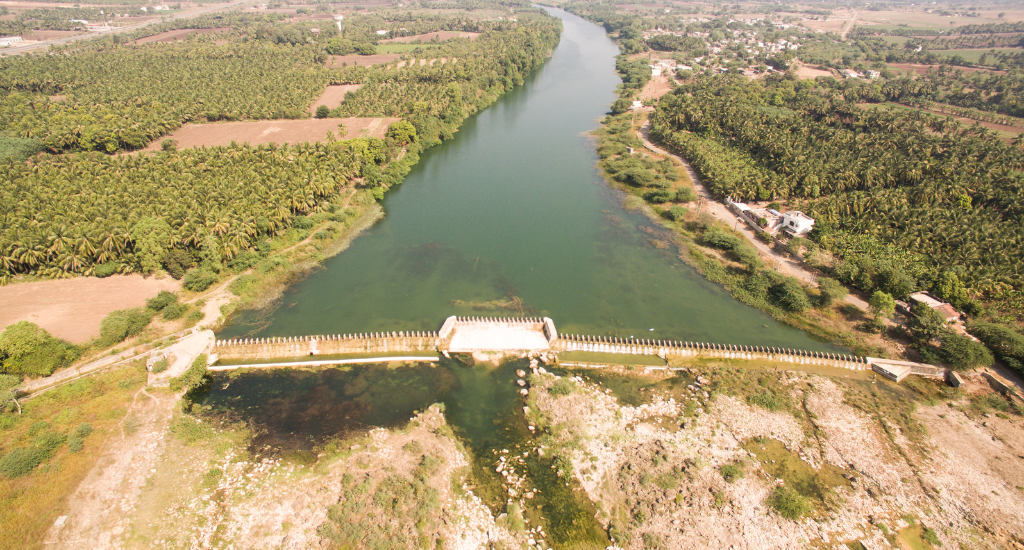
Community revives Meghal river, ensures water security
After a three-year devastating drought, the community living along Meghal river in Gujarat has built and restored water harvesting structures, ensuring water-secure villages.

After a three-year devastating drought, the community living along Meghal river in Gujarat has built and restored water harvesting structures, ensuring water-secure villages.
Meghal is a small river that rises in Sasan hills in Junagadh district of Gujarat and flows into the Arabian Sea. Like the rest of the Saurashtra region, Meghal’s 54 riparian villages in Mendarda and Mangrol tehsils of the district suffered the agonies of devastating droughts for three consecutive years in the mid-eighties.
The years saw intense distress. Thousands of cattle perished or became too weak to be productive. Hundreds of people migrated as their villages had no rains or drinking water. The deprivation brought about by the droughts was so intense that many considered permanent migration, leaving their homelands.
Efforts to recharge the groundwater were made immediately after the drought eased. However, these efforts brought temporary relief as the well recharge structures got clogged with silt soon.
The community however persisted with their efforts and, with some support, overcame the problem by building new water harvesting structures and repairing existing ones.
The team at Aga Khan Rural Support Programme-India (AKRSP-I), which works in the region, worked to bring the community together and create a collective will to overcome this frequently occurring nature-induced adversity.
Also Read: Cost-effective jalkunds help Manipur’s farmers tide over water woes

The core idea behind this was to undertake efforts to revive the river and also regulate water use to ensure year-round water supply to people living in the village.
Water is a critical resource for the farmers in this region. Naturally, individual farmers want to appropriate as much water as they can for their own wellbeing. Saurashtra farmers are enterprising and hard working. They are also very well informed and grow many different crops.
After intense efforts to mobilise people, the communities built 284 water harvesting structures and repaired the rest to bring the total to over 1,200 check dams and other structures (including boribunds, percolation tanks and recharge wells) on the 30 km stretch of Meghal river and its tributary streams.
But how is a community-revived resource utilised by everyone?
Also Read: Rainwater Harvesting: How a parched village catches rain to prosper

Every farmer wishes to increase her income and water is very important for this. Recognising this, the collective action was as much about harvesting and conserving the limited stock of rainwater coming from unpredictable monsoons as about the most equitable and proper use of that harvested and conserved water.
This also meant that the collective had to regulate which crop would be grown on how much area using how much water.
With near-complete capture of precipitation, adequate ground water recharge, and coordinated and equitable water use, the Meghal river basin has become water-secure and self-sufficient. With prospering livelihoods and satisfied people, the likely spectre of permanent mass migration has been banished in favour of green shoots of reverse migrations.
The key lessons are that the grimmest weather-stressed region can be improved with an understanding of the local hydro-geology, and by technical interventions such as designing a large number of water harvesting and distribution structures.
However, unless there is participation of an aware and a mobilised community willing to abide by rules about water use, such efforts will produce less shining results. This community along Meghal river has demonstrated that a determination to put their distressing past behind them can achieve dramatic results.
Watch: The elderly are leading climate action in Thar
The lead image shows a check dam built across Vrajami river near Dhaneja Moti village (Photo by K Sivamuthuprakash)
K Sivamuthuprakash holds a PhD from IIT Bombay and currently works as a researcher with VikasAnvesh Foundation.